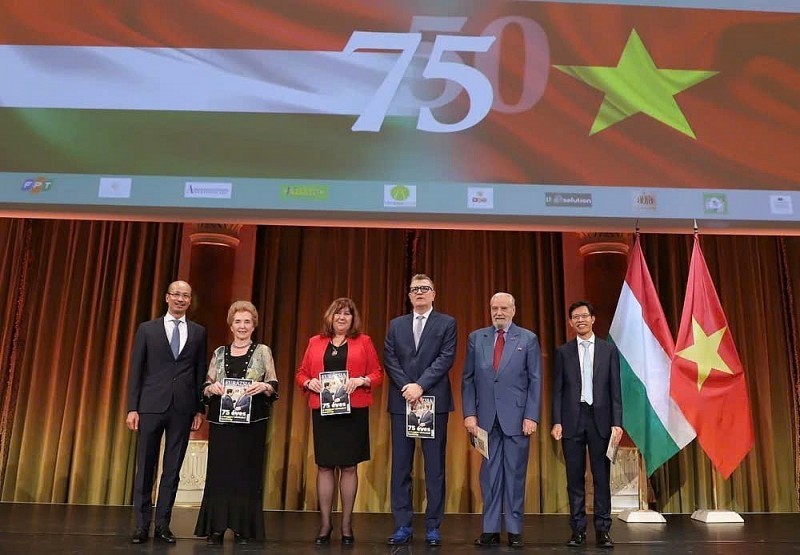Translator Vu Ngoc Can Builds Cultural Bridges to Connect Vietnam and Hungary
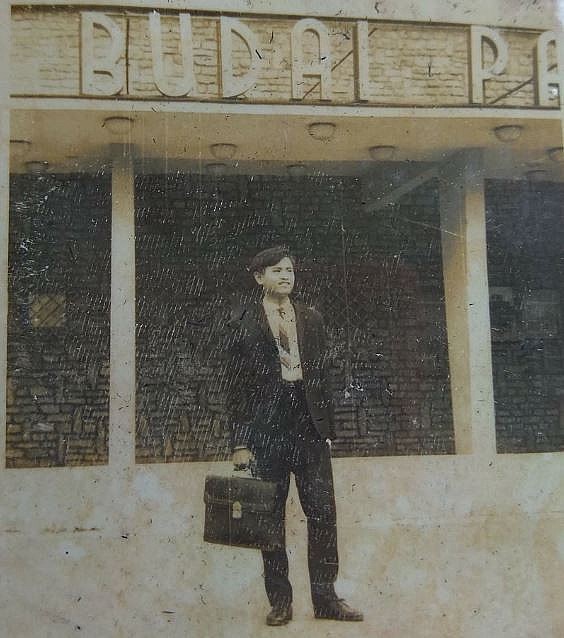 |
| Vu Ngoc Can when he was a student at Eötvös Loránd University. |
In 1967, among more than 120 students sent by the Vietnamese government to Hungary, there was a young man named Vu Ngoc Can, born in the poor countryside of Thuong Hoa, Chau Son commune, Kim Bang district, Ha Nam province (now Phu Ly district, Ha Nam province). As one of the five best students in Hungarian language class, he was appointed to study Hungarian Literature. This is an opportunity for him to know and study many literary works of the host country.
He said: "I love reading. Living in the Eötvös Loránd dormitory, home to a big library with many precious books, I have many opportunities to read and research. There was a time when I borrowed books from the library and stayed up until 4 or 5 am to read. I took a nap for a few hours, then went to class at 8 am. The more I read and learn, the more interested I am in Hungarian literature. From then on, I was more determined to "conquer" and introduce Hungarian culture to the Vietnamese people."
With that goal in mind, he practiced composing poetry in Hungarian. Some of his works were introduced in the university newspaper and received positive feedback from friends and teachers. He then began translating stories and books. He always tries to research the language and culture to be able to translate directly from Hungarian to Vietnamese. This ensures that the true soul and spirit of the original work are fully conveyed.
To date, translator Vu Ngoc Can has translated many famous Hungarian works such as "The Doctor's Death" (Fekete Gyula), "The Boys of Pál Street" (Molnár Ferenc), "Yes, teacher" (Karinthy Frigyes)... He also translated more than 1,000 poems by more than 20 well-known Hungarian authors such as Petőfi Sándor, Vörösmarty Mihály, Arany János, Ady Endre, József Attila...
A bridge of friendship
Vu Ngoc Can's favorite novel is "The Boys of Pál Street" by Molnar Ferenc.
He said: "One summer evening in 1970, I happened to a movie adapted from the novel "The Boys of Pál Street" on TV. I was touched. Right after that, I bought the book and was fascinated. Conquered by the clear, simple but meaningful writing, I began translating small parts, and after two years the translation was completed.
In 1984, "The Boys of Pál Street" was published by Kim Dong Publishing House with more than 50,000 copies. The book was reprinted three times, all were warmly received by readers.
"Each reprint has its own unique features. The first edition has the clearest Vietnamese imprint because all illustrations are adapted by artists of Kim Dong Publishing House. In 2010, the edition was reissued by Thanh Nien Publishing House with a harmonious combination of paintings by Vietnamese artists and illustrations from the original Hungarian book. In the third edition, Dan Tri Publishing House presented works of the original book," said translator Vu Ngoc Can.
 |
| Three editions of "The Boys of Pál Street." |
The translator's biggest satisfaction is to see the book well received by both young and elderly readers. Many sent letters to the publisher saying the novel's engaging translation recalled them of their childhood. Each page of the book teaches them lessons about friendship, honesty, and tolerance in life.
Not only introducing Hungarian literary works to Vietnamese readers, Vu Ngoc Can also translated many Vietnamese works into Hungarian. These are poetic works by Tran Dang Khoa, Hoang Hieu Nhan, Le Anh Xuan, Nguyen Duy, Bui Minh Quoc... or short stories by Nguyen Hong, Nguyen Dinh Thi... The translations were published by famous Hungarian publications such as Élet és Irodalom, Újírás, and Nagyvilág.
Word of gratitude to the host country
Vu Ngoc Can also has made contributions to the teaching Hungarian language in Vietnam. He is the founder of the Hungarian language department at Hanoi University, formerly the University of Foreign Languages. He has compiled programs, textbooks, and research projects on teaching and learning Hungarian in Vietnam.
At the age of 75, translator Vu Ngoc Can is still diligently translating and teaching Hungarian to students. Through his classes, he conveys knowledge about the language and spreads his love for this country's literary works. This is his way of expressing his gratitude to the country where he spent many years studying.
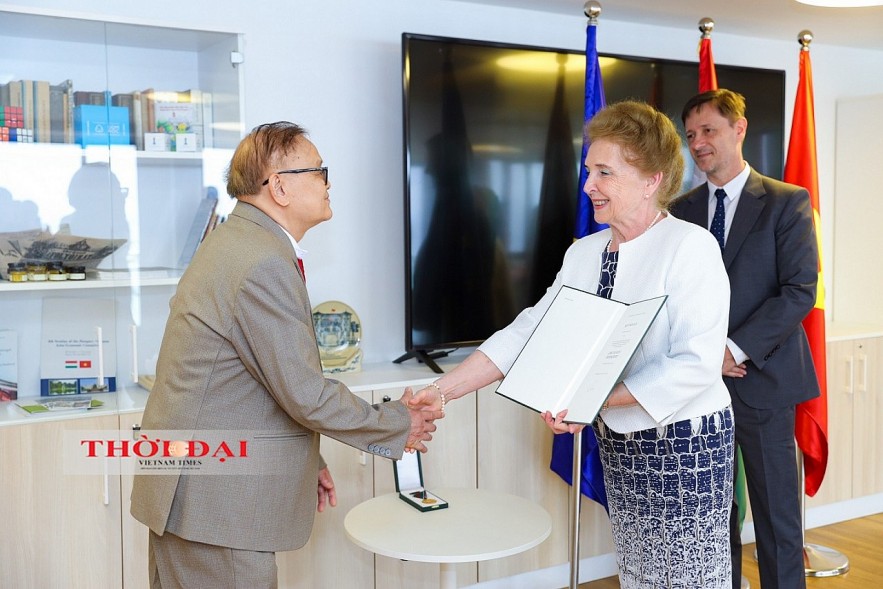 |
| First Officer of the Hungarian National Assembly Márta Mátrai (white blouse) on behalf of the President of Hungary awarded the Gold Cross Medal to translator Vu Ngoc Can, recognizing his contribution to introducing and promoting Hungarian culture through literary translation. (Photo: Dinh Hoa) |
Talking about his upcoming plans, Vu Ngoc Can said he looked to complete the translation of two famous Hungarian plays called "The Toth Family" and "The Human Tragedy" to introduce to Vietnamese readers and audiences.
Despite his constant efforts, Vu Ngoc Can humbly believes that the cultures of the two countries themselves have great appeal. To Can, he is just an ordinary person who connects bridges of friendship, bringing out the inherent beauty and attractiveness to introduce to more people in the two countries.
 | Csaba Szabo: Hungarian Chef Who Brings his Homeland Cuisine to Vietnam “The reason I am still here is thanks to the openness and hospitality of the Vietnamese people. I like everything as it is: the unique ... |
 | First Hungarian Culinary Corner in Hanoi Launched On Hungary's National Day, March 15, the first Hungarian culinary space in Hanoi was established. The place serves traditional Hungarian dishes prepared by Hungarian chef ... |
 | Ninh Binh Strengthens Cooperation With Hungarian Localities Ninh Binh wishes to promote cooperation with Hungary in the field of tourism, attract investment, develop high-quality human resources, and share experience in building laws ... |
Recommended
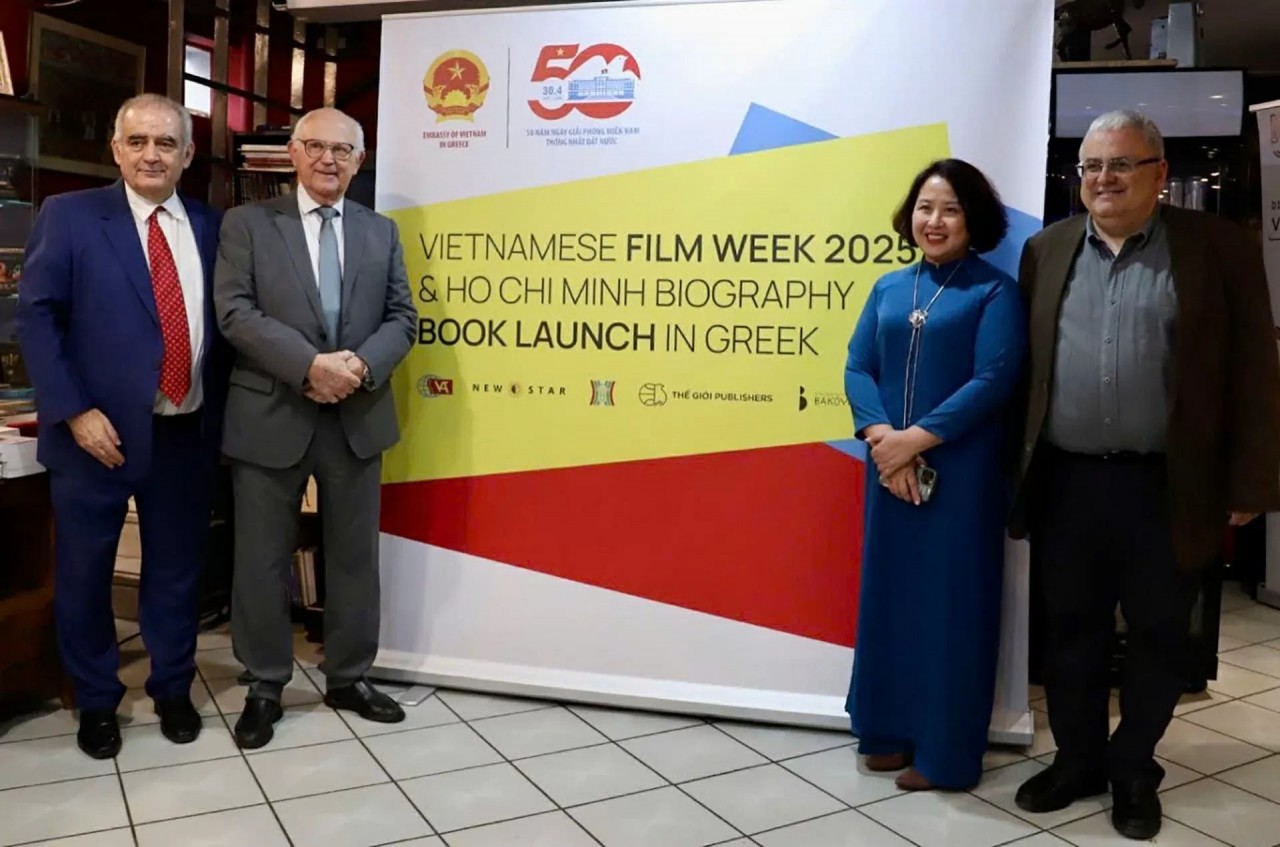 Overseas Vietnamese
Overseas Vietnamese
First Vietnamese Film Week Opens in Greece
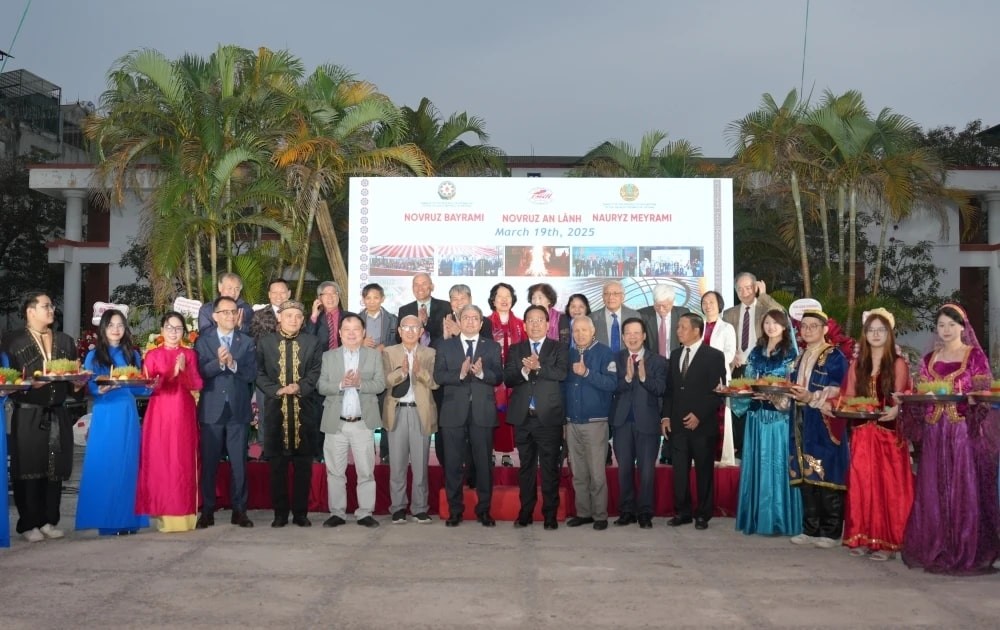 Overseas Vietnamese
Overseas Vietnamese
Strong Bonds Between Vietnam And Belarus, Azerbaijan, and Kazakhstan
 Overseas Vietnamese
Overseas Vietnamese
Vietnam Festival in Tokyo To Be Held for 18th Time
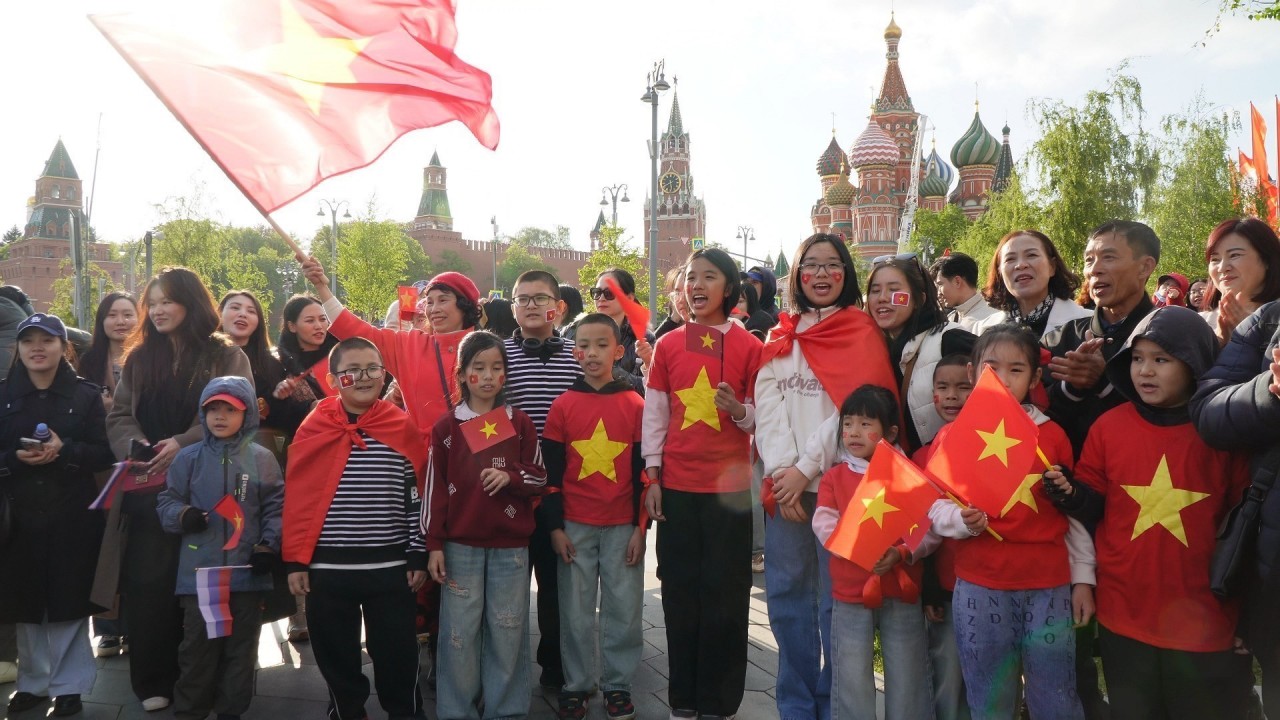 Focus
Focus
Overseas Vietnamese in Russia Welcome Vietnam People's Army Delegation at Red Square
 Overseas Vietnamese
Overseas Vietnamese
Global Vietnamese Community Celebrates 50 Years of Reunification with Pride
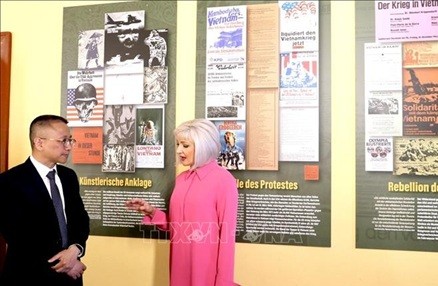 Overseas Vietnamese
Overseas Vietnamese
Exhibition “VIETNAM 75” Honors Aspiration for Independence and International Solidarity
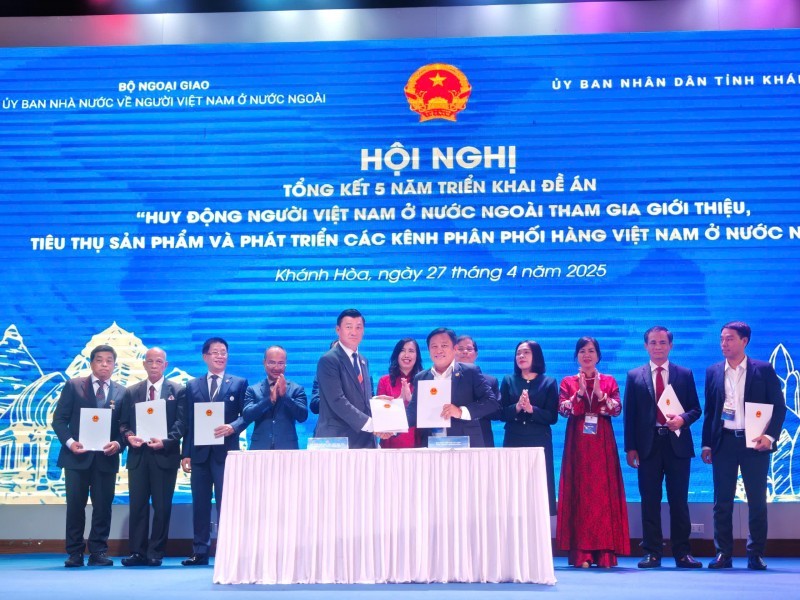 Overseas Vietnamese
Overseas Vietnamese
Overseas Vietnamese Help Boost Vietnam’s Agricultural Exports
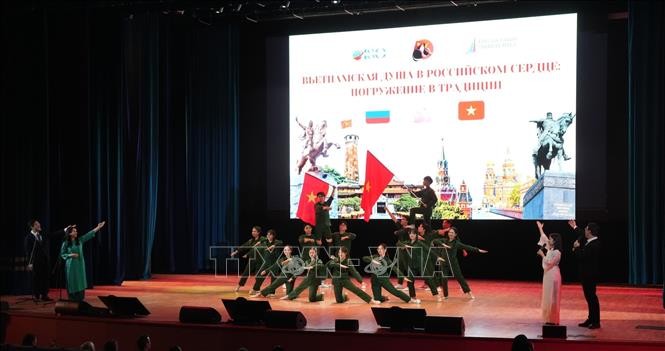 Overseas Vietnamese
Overseas Vietnamese

